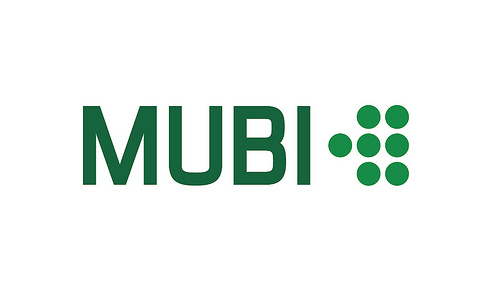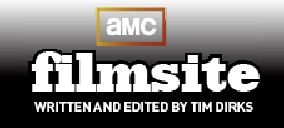End with a Bang: Propaganda in the Final Scene of FOREIGN CORRESPONDENT
12 June 2011
Foreign Correspondent (1940) is most often noted as a propaganda film. Director, Alfred Hitchcock, and writers, Charles Bennett, Joan Harrison, James Hilton, and Robert Benchley (who also acted in the film), injected the film with both subtle and screaming messages about Hitler and the Nazi party on the eve of World War II. Like earlier films, namely The Lady Vanishes (discussed last week), Hitchcock uses the cinematic medium to express many of his world views, and, while Foreign Correspondent is full of said views, the film’s final scene is where Hitchcock, along with uncredited writer, Ben Hecht, demonstrates a mastery of cinematics while communicating, perhaps, the film’s heaviest dose of propaganda.
In Foreign Correspondent’s final scene, Johnny Jones (Joel McCrea), with Carol Fisher (Laraine Day) by his side, delivers a radio broadcast from London to America warning Americans that war is breaking out. Originally, this was not the final scene of the film, but, just days before Germans actually bombed London, Ben Hecht wrote this final speech and Hitchcock feverishly directed for celluloid.
The language of the speech is full of innuendo and figurative language that work on both the conscious and unconscious minds of listeners. The speech opens with Johnny saying, “Hello, America,” which identifies all Americas, not just the fictitious characters in the film, as Johnny’s intended listeners. He jumps swiftly into violent phrasing when saying, “a part of the world [is] being blown to pieces,” and, directly after that statement, he likens that “part of the world” to Vermont, Ohio, Virginia, California, and Illinois. This likening makes the frightening suggestion that these United States may also be in danger of being “blown to pieces;” the overseas dangers have now touched American soil.
The violent phrasing continues when Johnny says, “…[this part of the world] lies ripped up and bleeding like a steer in a slaughterhouse.” The simile, comparing the devastated area with a brutally murdered animal, implies the violence occurring in the world is not human; it is savage. This idea is confirmed in the next line when Johnny says, “I’ve seen things that make the history of savages read like Pollyanna legends.” The mentioning of “savages” here is important. Johnny states what he has seen is even worse than the most barbaric story of savages; therefore, those responsible for the violence he is seeing are less than savages, if that can even be imagined.
Johnny’s next thought, “I’ve seen women…” is incomplete as bombs begin exploding behind him and the radio official tells Johnny the broadcast must be postponed. The fact that his thought is incomplete suggests it is the most violent, inhuman thought of all; it cannot even be expressed to the audience. Moreover, when the radio official mentions “postponing” broadcast Johnny replies with, “Oh, postpone nothing!” This is a rather clear message. Johnny is saying nothing should or can be postponed at this point. Remembering his is addressing America, his call for action against the less than savage enemy is clear.
The radio official tries to persuade Carol to evacuate to safety, but, in looking to Johnny, he says to her, “How about it Carol?,” and she replies, “They’re listening in America, Johnny.” Her response is profound. Just earlier in the film her father, Stephen Fisher (Herbert Marshall), sacrificed his life to save others in a plane crash. In part, because of his death, Johnny is able to deliver his broadcast to America. To sacrifice oneself for the greater good of humanity is a subtle theme in Foreign Correspondent. Now, standing there with bombs exploding around them, Johnny and Carol chose to sacrifice themselves for the greater good of America by continuing to deliver the broadcast.
As Johnny continues, his language emphasizes light and dark. Johnny tells America the lights went out in the radio station and “death,” a word attaching a dark connotation, both literally and figuratively, is on its way. Johnny urges America to “keep [its] lights burning,” that although he now “stand[s] in the dark,” America must “hang on to [its] lights; they’re the only lights left in the world.” Clearly, the speech is directly stating that America is world’s only hope in World War II; that, somehow, Europe is falling to the enemy and America, and only America, has the power to retaliate successfully. In both overt statements and subtle innuendos, the language of the final speech exemplifies the type of propaganda Foreign Correspondent is saturated with.
Yet, the language of the speech alone is not what gives Foreign Correspondent’s final scene such great weight; Hitchcock’s directorial skills add a visual presence as rich with innuendo as the words themselves. The camera fades in on this scene in a long shot to capture not only Johnny and Carol completely, but also a great deal of background action behind them. Johnny and Carol stand in a glass booth at the radio station. Initially, everything seems normal; behind Johnny, the audience can see people moving quickly in the station’s hallway, perhaps signaling heightened anxiety. Standing at the microphone, while Carol sits to his right, Johnny begins to speak, and the camera slowly zooms in toward him. As sirens sound in the background, the people in the hallway become increasingly frantic and start fleeing the scene. As the radio official attempts to postpone the broadcast and bombs blast, Hitchcock significantly reduces the light in the scene and cuts to a close-up on Johnny and Carol, together in one frame; they stand united while they deliver their sacrificial message to America. Johnny’s lines about America’s light are better understood as he and Carol stand alone in the scene’s unstable lighting, and Carol’s facial expressions show the fear and uncertainty surrounding them both. As Johnny’s speech concludes, the light becomes dimmer and dimmer, until, by his last words, the light is completely extinguished, symbolizing, with great visual impact, Johnny and Carol’s sacrifice.
As the final credits begin to role, the camera cuts an eagle, the symbol of America. Most importantly, there is a strong, bold light that seems to project from the eagle, the light Johnny begged America to hold on to and keep burning. The music during this final shot is the “Star Spangled Banner,” solidifying the spirit of America that Johnny calls upon to defeat its enemy.
Overall, Hecht and Hitchcock join forces in the film’s final scene, creating a grand and fitting conclusion to a film steeped in propaganda from start to star-spangled finish.















